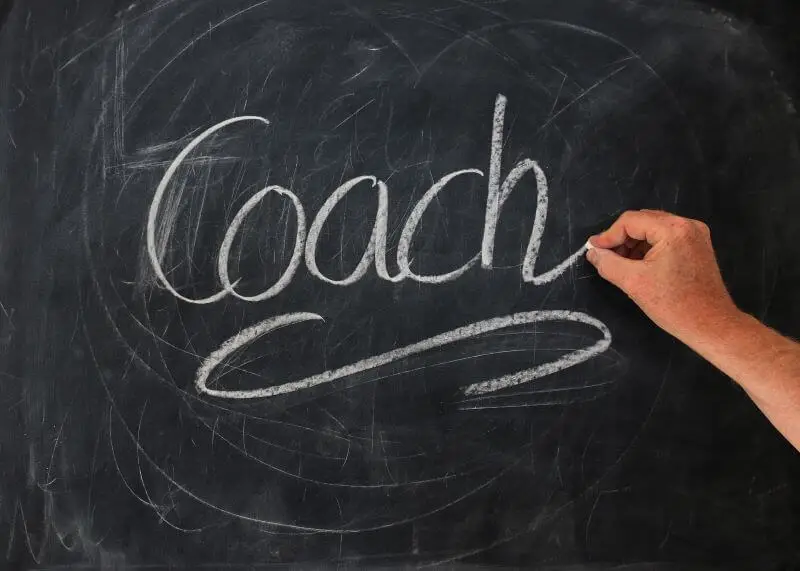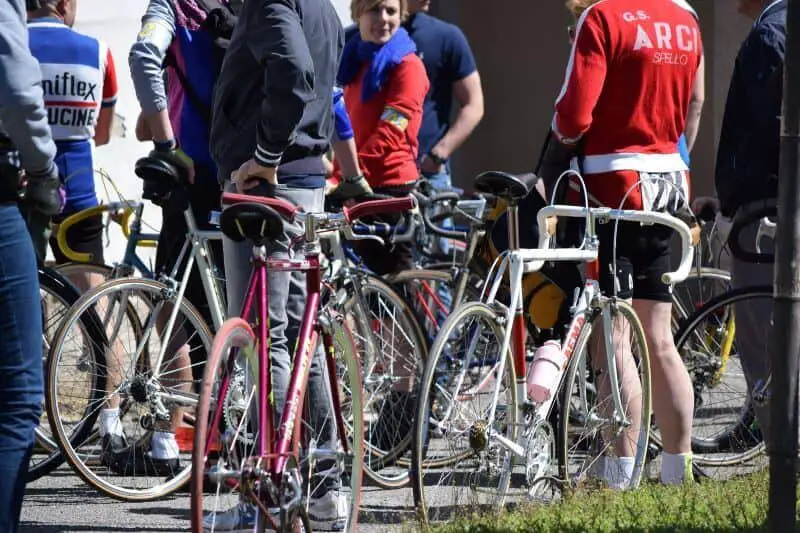Do You Need A Cycling Coach?
What a silly question. Of course, you do. Coaching is what keeps me out of jail and is how I rake in the millions! All joking aside, I feel like I’m blowing my own horn as I write on this subject. But maybe my perspective will help you determine if a cycling coach is a next step in your journey as a cyclist.
Let me address the opening question from a Coach’s point of view.
If you walked up to me and asked if I’d coach you, I’d counter with one word: why?
I’m not trying to be snarky or existential but to seek to understand your goals and motivation. If your answer is you want to get into racing or have an endurance event to prepare for, then I’d concur: you need a coach. On the flip side, if you hem and haw or scratch your head because you’ve never considered my question, I’d suggest you do more soul searching before moving forward. As the adage says, “If you aim at nothing, you’ll hit it every time.”
As a recreational cyclist, if you told me that getting a coach is the next logical step and some of your cycling friends told you as much, I’d smile and tell you that without a doubt, you don’t need a coach to continue riding for fun. I’d also advise you to find more knowledgeable cycling friends.

Cyclist Beware
Now that we have that settled, here’s a tip if you’re shopping for a cycling coach. Let the Latin phrase caveat emptor, “Let the buyer beware,” be your guide.
In other words, investigate; never assume that just because so and so is licensed or worked here and there that they’re perfect for you. Start by asking fellow cyclists who they’d recommend. Interview coaches to see if their personality and coaching style is a good fit. A coach with a racing and track pedigree may not be the ideal candidate if you’re interested in completing a Gran Fondo. Likewise, if you have your sights set on an Ironman event, you need a coach who understands the various disciplines associated with triathlons.
A cycling enthusiast does not make a coach. They may be a remarkable, insightful, and positive person but that won’t help when it’s time to create a training regimen, explain basic sports physiology, give nutrition advice, to list a few.
Your best bet is to find a licensed coach and be sure to ask what level they are certified. USAC and British Cycling have three certification levels for their coaches, but the hierarchy is different in each. For example, a USAC L-3 coach is an entry-level coach (that’s me), while at BC, an L-3 is top tier. Another advantage to getting a licensed coach is that they’re often insured, which is a good thing, so bear that in mind when shopping.
Also, depending on your goals, a lower certified coach may be perfect for your cycling goals. As an L-3 Coach here in the States, my forte and passion are working with new or inexperienced cyclists. I love helping them dial in form, set training goals, and “become comfortable with the uncomfortable.” At the same time, since I don’t aspire to get to L-2 or L-1, I’m probably not “your man” if you’re a seasoned rider aspiring to compete semi-professionally.
Benefits Of Having A Cycling Coach
If you’re still uncertain if a cycling coach is a next move, here are some reasons why having a coach can be of benefit.
- Accountability – If you’re like me, and I think we’re all like this to a degree, nothing gets me motivated like having to report to a boss or teacher or coach. Sometimes it’s the motivation I need to get the work done when I’m feeling tired. It also helps me excel to a higher level instead of settling for mediocre performances.
- Workhorse – Your coach will do the work creating a training plan, scheduling training rides, preaching on nutrition, hydration, and recovery. You are now free to focus on the fun stuff: cycling.
- Motivation – A good coach knows how to inspire you to perspire. Depending on one’s personality, this may involve a pep talk or a joke or getting “in your grill.”
- Confidant – There comes a time in every athlete’s life when discouragement sets in, or a string of setbacks stirs doubt; rattles confidence. A Coach, who will have spent countless hours with you and knows you inside and out, becomes the shoulder to lean on. He or she will also be the one to give you candid feedback on how your training is going, how a race went, or if you’re ready to compete at a higher level.

So, Is A Cycling Coach Worth It?
I could quote from the countless success stories of people from all walks of life, gender, and ability who achieved remarkable feats with a cycling coach. I could also ask those I’ve coached to comment on how I benefited them, omitting, of course, those who disagree with how wonderful I was!
Instead, I want to answer the question. In other words, is it worth coaching?
The first example is a friend who has experience as a triathlete and is a great runner. She recently asked if I’d coach her for the Source to City New York, a 300-mile, 4-day event that incorporates hiking, biking, and kayaking. I’m to help her train for the cycling section. I know she is mentally and physically tough enough to participate in this, so why did she ask me to coach? Although she didn’t give specifics, I would surmise from her request that it’s because I offer:
- Time – She has a busy life with work and kids and now this race. As her coach, I will free her of the time needed to create training plans and scheduled rides. She’ll need every spare minute to train.
- Experience – She is aware of my involvement in coaching and training with the local race team and knows I’ll bring the best of both worlds to train her for success in NY. I’ll be helping her with everything from considering a bike fit to what new gear or components she needs for this ride.
- Persistence – Because we’re friends, she knows I can be tenacious (my wife calls it something else!) and will push her when she wants to quit. I will also know when to encourage her if she’s too hard on herself.
First of all, I’m honored she would reach out to me for help and trusts me enough to coach her. Second, because this is my passion, I’m excited to get going! I’ve been investigating the course to learn how much climbing she’ll have. I love the process of seeing athletes improve; gain confidence in areas they feared (like climbing.) But the pure joy will come when she completes it. If she crushes it, I may do a cartwheel (even though I’ve never done one.)

Next, I want to chat about my work as a coach for JDRF (Juvenile Diabetes Research Foundation.) I help the Middle Tennessee Team (Nashville) get in shape for one of several century rides JDRF hosts across the US. Besides basic coaching knowledge, I also need to understand how type one diabetes affects athletes to avoid hypoglycemic reactions or hyperglycemic reactions.
When I say we’re a team, I doubt it’s what you picture as a cycling team. Aside from several riders who compete in triathlons, most are weekend warriors and sometimes those new to cycling. And the backgrounds and ages vary: there are teens with type one diabetes and moms and dads riding for a loved one. To be honest, at times, it’s like herding cats, but I love the opportunity and pinch myself that I get to coach such amazing people. Likewise, they appreciate my work (until I lead them up an 18% gradient!) since I have no connection to the disease. When I witness their grit at the finish line, exhausted but knowing they did it, I get emotional and experience deep satisfaction as a coach.
Well, I’m beginning to get sentimental, so I’ll hop off my soapbox. In closing, I hope my advice and insights have helped you decide if a cycling coach is in the cards for you.
You may also like to read:

